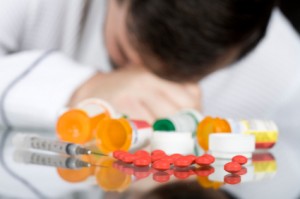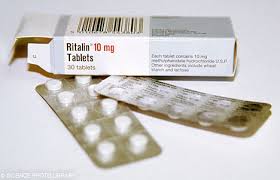Cracking the Addiction Culture: Why are More Students Turning to Drugs to get Through College?
College is a very stressful and nerve-wracking stage for young adults and can create some normal social anxiety for many students. Drugs and alcohol are becoming some of the most popular activities among the college students and according to the NIDA, the amount of students in 2014 who use drugs like marijuana rose above the amount of those who smoke cigarettes for the first time since 1980.
College students turn to drugs to get through school for many different reasons. If you have concerns about your student, call 800-605-6597 Who Answers? to learn about the available options.
Stress at College
Many students have much more going on during their college years than simply school and the stress of it all may turn them toward drugs to cope. Some may be parents who are struggling to make ends meet while participating in full-time school while others work part or full time during school and still more participate in sports and fraternities or sororities.
With everything going on, it is hard to resist the allure of drugs for the effect they can have on the brain despite the potentially dire consequences of it.
So Much Homework!

Some students abuse drugs in an attempt to get large workloads completed on time.
College classes are well known for their high workload, which can make all-nighters popular among the student body, especially with the penalizations professors have for late work. Stimulants become a necessity as students struggle to stay awake long enough to finish their presentations and papers by the time they are due.
Many will obtain these without a valid prescription by faking the note or faking illnesses to get the drug from doctors.
Curiosity & Drugs
Everything is new when it comes to college and most students have mustered up the courage to try new things now that they are out on their own. Not only are they exploring their options in the professional field by testing out majors, but they are also taking a personal journey to find out whom they are and what they like.
Drugs are often something that is offered during parties or study groups and with the freeing sensation in their minds, many college students feel ready to try whatever their peers are doing to fit in and explore.
The Peer Pressure
According to SAMHSA, it is important to note that not all peer pressure is negative and the positive peer pressure can help young people to learn cooperation, conflict resolution, and negotiation.
Unfortunately, there are also bad influences who will pressure the new college students into drugs by manipulating them into thinking drugs will help them to fit in with their fellow peers.
Students are often surrounded by others who are experimenting with drugs that are recreational and performance enhancing for themselves, which only serves to cement the claim of using drugs to be at the top of the food chain.
College is a frightening and exhilarating experience and many students are driven to try drugs. Some of the reasons college students may be turning to drugs to get through schools include stress from various life activities, the course load, curiosity, and peer pressure.
Even experimenting can lead to an addiction to drugs and while it may help the students to relax, socialize, and stay awake during college, it does not outweigh the consequences and risks of using drugs.
If you or someone you love is suffering from addiction and needs to find help, please call 800-605-6597 Who Answers? to speak with a caring professional that can assist you.



